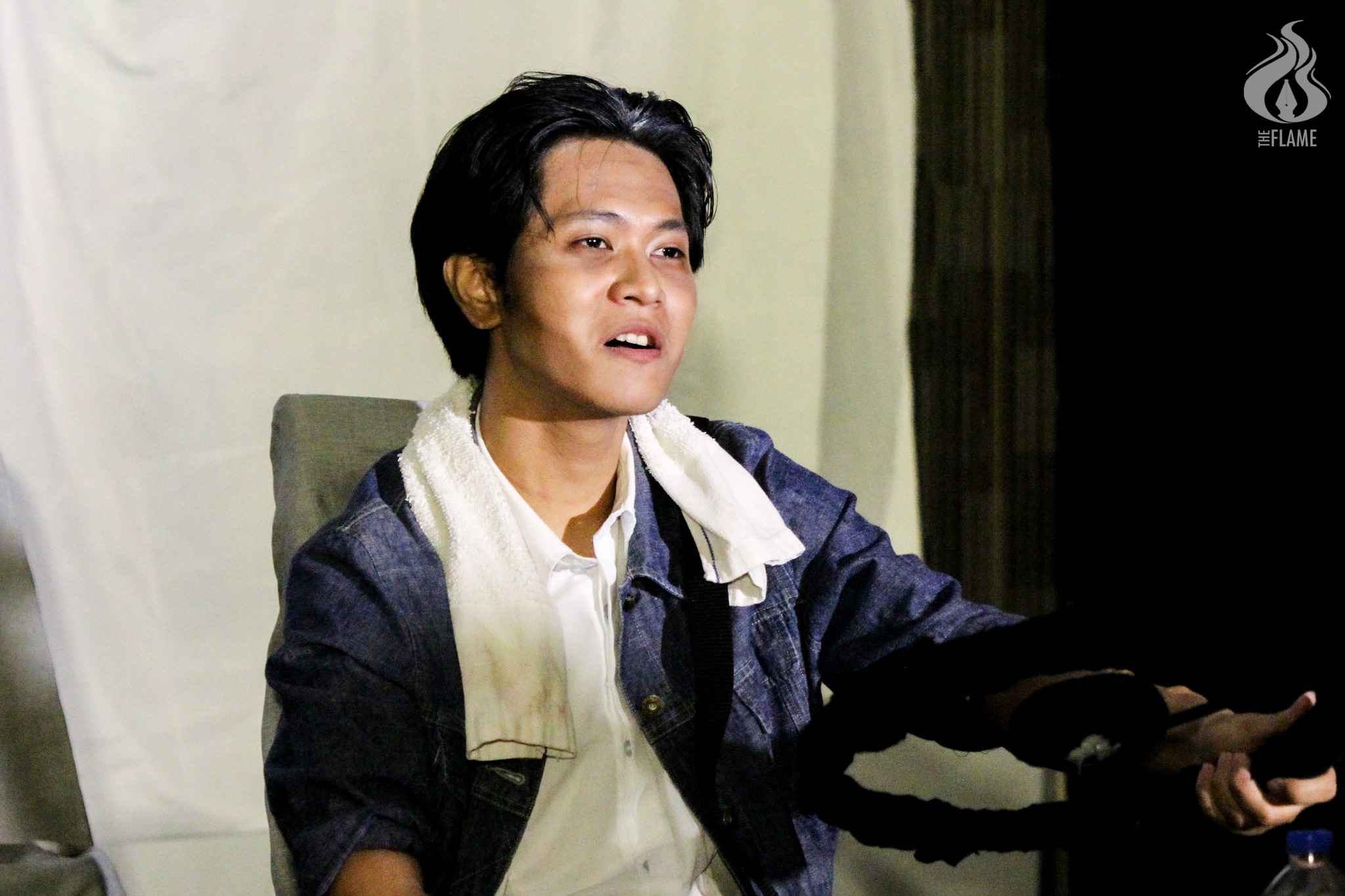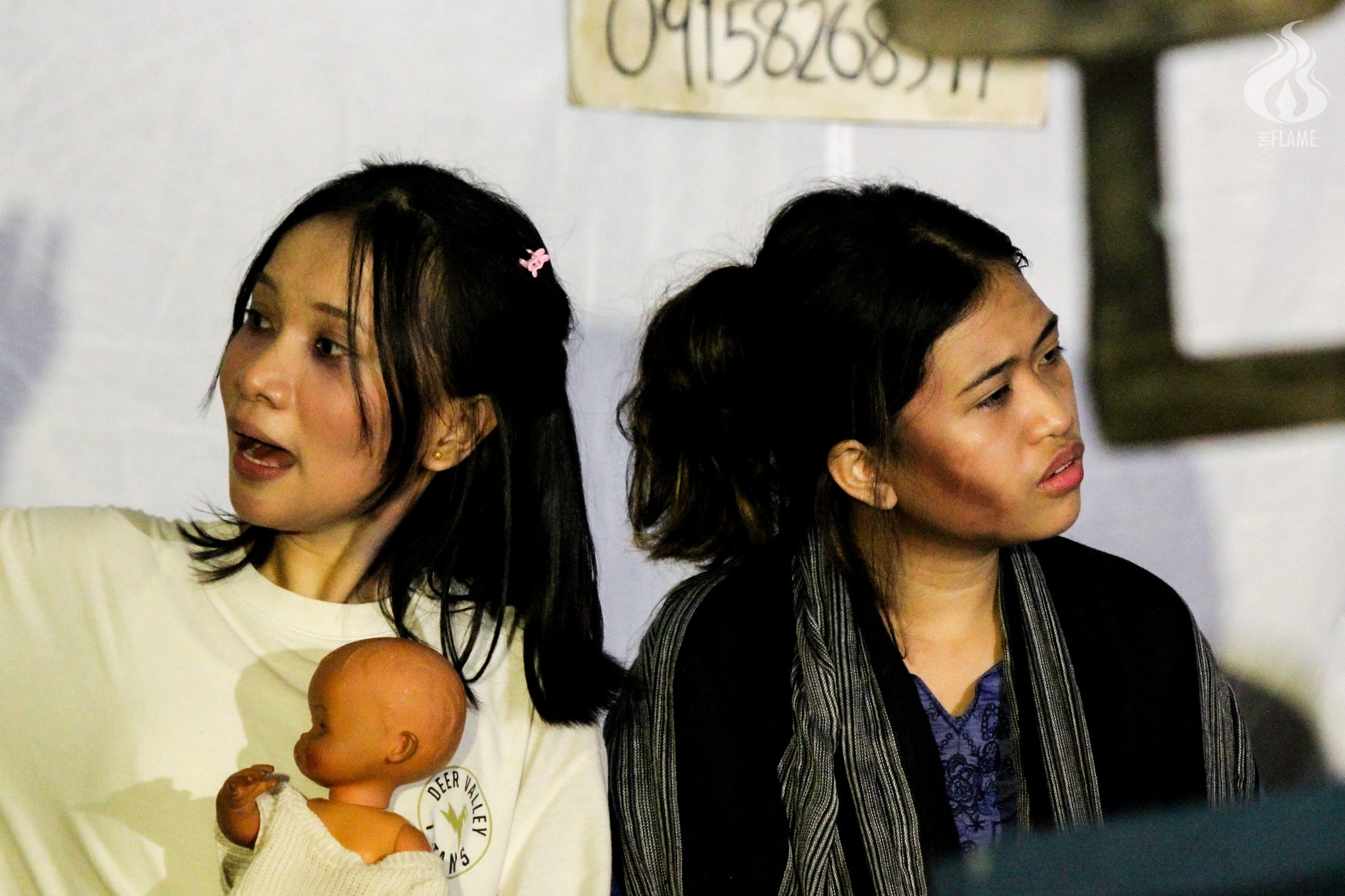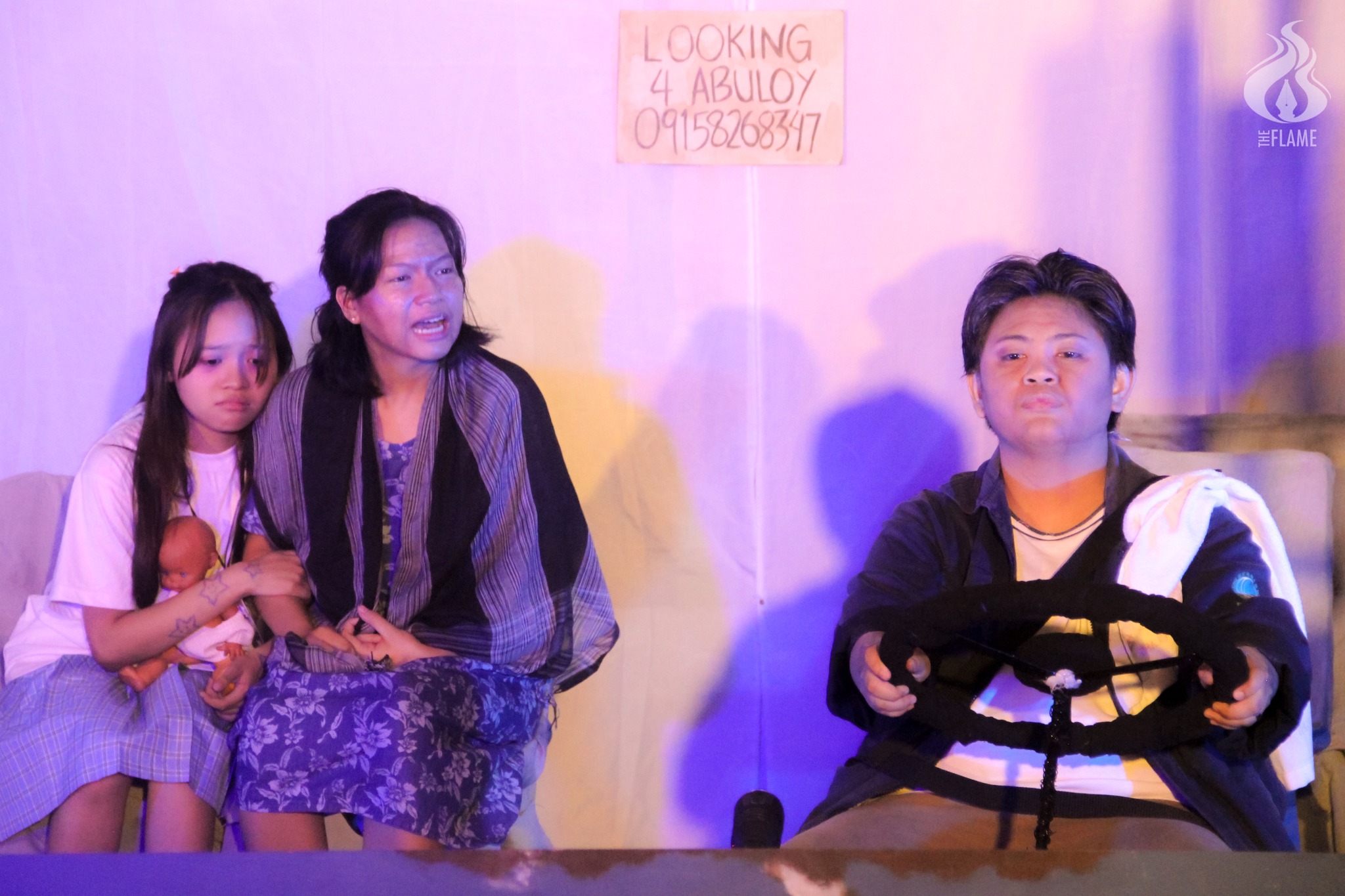“Kailan mo ba ipapawalang-sala ang sarili mo (When will you absolve yourself)?”
Maoyu Transit was a story of healing and respite.
Co-directed by Ma. Cecilia Foja and Jemina Rose Macasaet, the production was a simple yet endearing exploration of twists and bumps. Written and managed by Erin Balbin, the show marked the Artistang Artlets’ Theater Guild’s return to the onsite stage.
The play follows Mang Domeng (Allen Margallo) as he welcomes two passengers, Maya (Erah Alcaraz) and Aling Fe (Jem Gonzales), to his bus. The trio soon finds the ice breaking between them through Maya’s childish nature and chattiness. The story begins lightheartedly. Maya is ecstatic as she recounts happy memories. However, things take a darker turn as they approach their destination.
What started as the show’s strong point, the usage of stage lighting, became a vehicle for the tonal shifts in the dialogue. With minimal movements from the actors, the crew cleverly made use of the colors of a stoplight. Green was used during the lighter, more endearing moments that usually showcased Maya, while red was employed during the darker scenes. The lighting, paired with the sound design, made for a fitting mood within the stage.

However, this quickly grew into one of the production’s weak points as the lighting started to distract viewers from the dialogue. In a play with minimal movement, it became hard to follow the story with lights flashing from behind the audience.
The story itself was bare-bones when it came to the present performance. The dialogue mainly focused on what happened in the past that was left to the audience’s imagination. This aspect left significant parts of the story ambiguous and unanswered even as the curtains closed.
Despite this, the story shined in a shocking yet cohesive climax. The production’s slow uncovering of the past, orchestrated by Maya, was its driving force. However, as the show ended, many questions were still left unanswered. The most glaring question is what happens to Mang Domeng as he ponders Aling Fe’s words. What led the mother and daughter to the bus?
The dialogue became unnatural and unnecessarily formal in some parts. The overuse of “ho” in Aling Fe’s lines was sometimes distracting despite Gonzalez’s stellar performance. Still, the foreshadowing of the eventual reveal was thrilling, leaving the audience on the edge of their seats.
Gonzalez’s mannerisms throughout the show were subtle but told Aling Fe’s story well. She was shy, closed off, and defensive of herself. She covered her arms with her scarf and kept herself small, contrasting Maya’s expressiveness and openness. Margallo’s portrayal of Mang Domeng’s hesitance and grief was chilling and goosebump-inducing.
From the start, Maya easily breaks the ice between her mother and Mang Domeng. For most of the show, Maya carries the conversation between them as Mang Domeng seemingly finds it easier to bond with Maya. The foreshadowing of the production’s big twist was subtle enough not to stand out but noticeable enough to add up eventually.

Alcaraz’s performance was superb, as her character stole the show. Her cheerful voice and wide, ecstatic movements perfectly encapsulated Maya’s childish nature. Due to the small stage, Alcaraz’s bouncy mannerisms quickly dominated the scene and stole the audience’s gaze.
The costumes were simple yet effective. Aling Fe’s character became the one with the most layering as her costume design told a story in itself. Maya and Mang Domeng’s costumes were realistic but very simple. Their attires were not as layered or symbolic as Aling Fe’s.
Similarly, the stage design was plain. The lighting mainly did all the work in setting the scene and tone. While not hindering the storytelling, it stood out as the production aimed to highlight symbolisms in the theater.
As Artistang Artlets’ first onsite performance in three years, the expectations were high, and excitement was brimming in the cast and crew. The story was empathetic, tragic and thrilling.
Maoyu Transit was a complex tale to follow. The audience was neither formally introduced to the cast nor saw a definitive end to their story. Instead, the show left puzzle pieces, forming a bigger picture beyond the stage.
The production left both a taste of grief and relief in the audience. Maoyu Transit delivered a story of freedom and forgiveness while teaching its audience the function of symbolism in storytelling. Though it had weak points, the story delivered its message well. F




